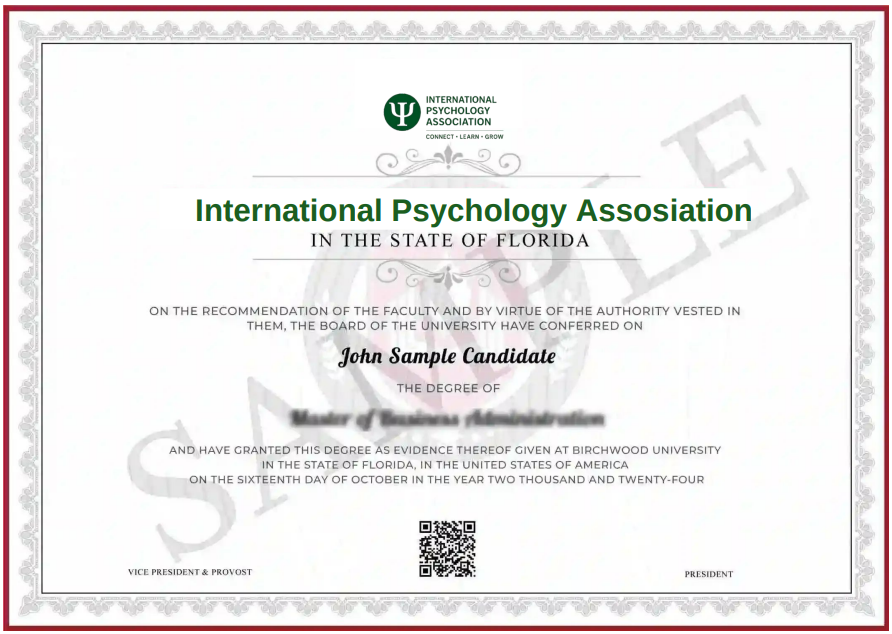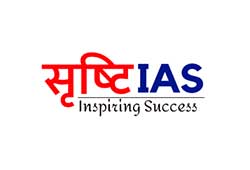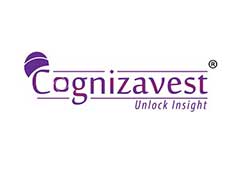Eligibility
Graduation & above
Duration
18 Months
Semesters
3
Program Credits
Standard
Program Start Date
23rd Aug, 2025
Course Overview
If you're feeling uncertain about whether this course is the right fit for you or have any questions, feel free to reach out to our "Career Expert". We're here to help you find the best path forward.
About this Course
MEPSC - Skill India Advantage
Course Curriculum
Standard
20
375
480
900
4
-
Basic principles of development across
the lifespan
-
Stages of development (infancy,
childhood, adolescence, adulthood)
-
Key theories of human development
(e.g., Piaget, Erikson)
-
The impact of genetics, environment,
and culture on development
-
Definition of Cognitive Psychology:
Understanding cognition as mental
activities related to knowledge
acquisition, processing, and application.
-
Scope: Overview of key areas of cognitive
psychology, including perception,
memory, problem-solving, decision-
making, and language.
-
Historical Context: Emergence of
cognitive psychology from behaviorism,
the cognitive revolution in the 1950s-60s,
and key contributors like Neisser and
Chomsky.
-
Structure and Function of the Nervous
System
-
Neurotransmitters and Brain Chemistry
-
The Endocrine System
-
The Role of Genetics in Behavior
-
The Sensory Systems: Vision, Hearing,
Touch, etc.
-
Sensory Processing and Perception
-
Perceptual Illusions and Cognitive Biases
-
Theories of Perception
-
Classical Conditioning (Pavlov)
-
Operant Conditioning (Skinner)
-
Observational Learning (Bandura)
-
Cognitive Learning Theories
-
Attention and Perception
-
Memory Models (Working Memory,
Long-term Memory)
-
Problem Solving and Decision Making
-
Cognitive Biases and Heuristics
-
Stages of Human Development
(Piaget, Erikson)
-
Cognitive Development in Children
-
Social and Emotional Development
-
Adult and Aging Development
-
Social Influence and Obedience
-
Group Dynamics and Group Behavior
-
Attitudes and Persuasion
-
Prejudice and Discrimination
-
Types of Psychological Tests (IQ,
Personality, etc.)
-
Psychometrics and Reliability/Validity
-
Ethical Issues in Psychological Testing
-
Applications of Psychological
Assessments
-
Classification of Mental Disorders (DSM-5)
-
Common Psychological Disorders (Anxiety, Depression, etc.)
-
Etiology of Psychological Disorders
-
Assessment and Diagnosis of Mental Health Disorders
-
-
Psychoanalysis and Psychodynamic Therapy
-
Cognitive Behavioral Therapy (CBT)
-
Humanistic and Client-Centered Therapy
-
Family Therapy and Systemic Therapy
-
-
Theories and Models of Abnormal Behavior
-
Psychotic Disorders (Schizophrenia)
-
Mood Disorders (Bipolar, Depression)
-
Anxiety and Stress-Related Disorders
-
Role of a Clinical Psychologist
-
Therapeutic Techniques and Approaches
-
Psychological Assessment in Clinical Practice
-
Ethical and Legal Issues in Clinical Psychology
-
The Biopsychosocial Model of Health
-
Stress and Coping Mechanisms
-
Psychological Interventions in Health
-
Psychological Aspects of Chronic Illness and Pain
-
Brain-Behavior Relationships
-
Neuropsychological Assessments
-
Cognitive and Emotional Effects of Brain Injury
-
Neurodegenerative Disorders (Alzheimer’s, Parkinson’s)
-
Cognitive and Social Aging
-
Theories of Aging
-
Mental Health in Older Adults
-
Aging and Quality of Life
-
Common Learning Disabilities (Dyslexia, ADHD, etc.)
-
Cognitive and Behavioral Interventions
-
Social and Emotional Impact of Learning Disabilities
-
Educational Strategies for Learning Disabilities
-
Intrinsic vs Extrinsic Motivation
-
Motivation in Education
-
Self-Determination Theory
-
Goal-Setting and Achievement
-
Theories of Stress (Transactional Model, General Adaptation Syndrome)
-
Physiological and Psychological Effects of Stress
-
Coping Mechanisms and Resilience
-
Stress Management Interventions
-
Substance Use and Addiction Models
-
Cognitive Behavioral Therapy for Addiction
-
Motivational Interviewing in Substance Abuse Treatment
-
Relapse Prevention Strategies
-
Types of Trauma (Physical, Emotional, Childhood)
-
PTSD and Trauma Responses
-
Trauma-Focused Cognitive Behavioral Therapy (TF-CBT)
-
Trauma and Recovery
-
Psychological Aspects of Crime and Criminal Behavior
-
Forensic Assessments and Profiling
-
Victimology and Psychological Impact of Crime
-
Ethical Considerations in Forensic Psychology
-
Motivation in the Workplace
-
Employee Selection and Recruitment
-
Organizational Behavior and Change
-
Job Satisfaction and Performance
-
Theories of Counseling (Cognitive-Behavioral, Person-Centered)
-
Counseling Techniques and Approaches
-
Crisis Counseling and Intervention
-
Ethical Considerations in Counseling
-
Attachment Theory and Relationships
-
Relationship Satisfaction and Conflict
-
Marriage and Family Therapy
-
Social Support and Relationship Dynamics
-
Gender Identity and Development
-
Gender Roles and Stereotypes
-
Theories of Gender (Social Learning, Cognitive Development)
-
Psychological Impact of Gender Inequality
-
Parenting Styles and Child Development
-
Emotional and Cognitive Development in Children
-
Parenting and Child Mental Health
-
Parenting Interventions
-
Cross-Cultural Psychology
-
Cultural Influences on Behavior
-
Diversity and Inclusion in Psychology
-
The Role of Acculturation in Psychological Health
-
Theories of Social Cognition
-
Stereotypes, Prejudices, and Discrimination
-
The Role of Social Influence and Persuasion
-
Self-concept and Identity in Social Contexts
-
Theories of Religion (Jungian, Freud, etc.)
-
Religion, Spirituality, and Psychological Well-being
-
Religious Coping and Mental Health
-
Religion’s Impact on Behavior
-
Psychological Assessment in Legal Contexts
-
Eyewitness Testimony and Memory
-
Forensic Psychology in the Court System
-
The Psychology of Jury Decision-Making
-
Theories of Sexual Behavior
-
Sexual Orientation and Identity
-
Sexual Health and Psychological Well-being
-
Gender and Sexuality in Psychological Research
-
Learning Theories in Education
-
Motivation and Academic Achievement
-
Classroom Management Techniques
-
Psychological Assessment in Education
How will this program benefit you?
Who all can join?
Graduates in Psychology or Related Fields
Educators and School Professionals
Healthcare and Social Work Professionals
Parents and Caregivers
Early Childhood Practitioners
Career Changers
Aspiring Researchers and Academics


Get Upto 35% Scholarship
"Avail up to a 35% scholarship and receive exclusive additional benefits."
- Alumni Network of 12,500+ Members - Gain access to a vast network of over 12,500 alumni who can support and guide you in your professional ventures.
- 90+ Hiring Partners - Benefit from dedicated job assistance through our extensive network of over 90 hiring partners, ensuring you have the best opportunities in the industry.
- Exclusive Membership - Enroll now and enjoy a complimentary membership, providing access to valuable resources and opportunities.
- Personalized Mentoring Sessions - Receive multiple one-on-one mentoring sessions with industry professionals throughout the course, helping you navigate your career path.
- Workshops, Events, and Bootcamps - Get free access to a wide range of workshops, events, bootcamps, and networking meetings, designed to enhance your skills and expand your professional network.

Course Faculty

Refer someone and Earn upto INR 12,000 Cashback/Vouchers, on every successful enrollment
Your friend also gets an instant scholarship!
Success Stories
Our Learners Work At
Frequently Asked Questions
Yes, completing the Psychology Foundation Course is mandatory and complimentary for all enrolled learners. This foundational course must be completed within 3 months to qualify for the final certificate. It is designed to strengthen your basics in psychology, ensuring you have a solid understanding to excel in advanced modules of the program.
Graduates of the MA in Psychology program can pursue various careers in fields such as counseling, clinical psychology, human resources, organizational behavior, mental health advocacy, and research. Many graduates also choose to continue their education by pursuing doctoral degrees in psychology or related disciplines.
Yes, the MA in Psychology program often includes practical training components such as internships, practicum placements, or supervised research projects. These opportunities allow students to apply their theoretical knowledge in real-world settings and gain valuable hands-on experience.
The accreditation status of the Masters in Psychology program may vary by institution. It’s essential to verify that the program is accredited by a recognized accrediting body. Additionally, while many programs provide a strong foundation for licensure, specific licensure requirements vary by state or country, so it's important to research the requirements in your desired location.



_1753183761.jpg)

_1755835833.png)



_1693906637.jpeg)
_1693906710.jpeg)

























_1752926748.png)